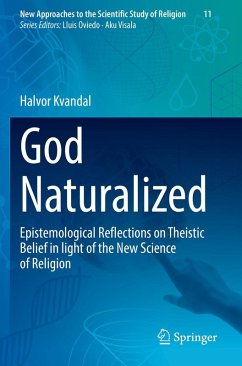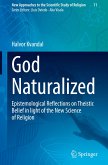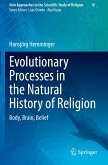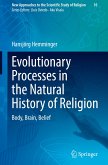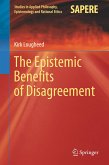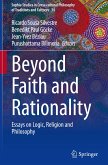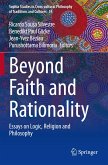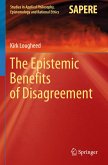This volume argues that theistic philosophy should be seen not as an "armchair" enterprise but rather as a critical endeavor to bring philosophy of religion into close contact with emerging sciences of religion. This text engages with the rationality of religious belief by investigating central problems and arguments in philosophy of religion from the perspective of new naturalistic research. A central question the book analyzes is whether findings in cognitive science of religion (CSR) falsify or undermine religious ideas and beliefs.
With regard to CSR, this volume offers a sustained and critical investigation of the neutrality and positive-relevance view, before offering a re-appraisal of the conflict view. The text argues that when scrutinizing these views, much more attention must be paid to specific normative premises that allow empirical findings to have epistemic relevance. A novel feature is the theoretical application of analytical epistemology in virtue-epistemology to the central question of whether CSR undermines, supports, or is neutral with respect to religious belief. This book appeals to upper-level students and researchers in the field.
With regard to CSR, this volume offers a sustained and critical investigation of the neutrality and positive-relevance view, before offering a re-appraisal of the conflict view. The text argues that when scrutinizing these views, much more attention must be paid to specific normative premises that allow empirical findings to have epistemic relevance. A novel feature is the theoretical application of analytical epistemology in virtue-epistemology to the central question of whether CSR undermines, supports, or is neutral with respect to religious belief. This book appeals to upper-level students and researchers in the field.
"Kvandal raises some interesting new arguments drawn from recent explanations of religious belief. His naturalistic perspective is refreshing given the dominance of theistic (Christian) interpretations of the epistemic implications of the theories. ... His book thereby shows that new explanations can and do present real challenges to the epistemic status of religious belief that cannot be discarded by hand-waiving replies." (Hans Van Eyghen, International Journal for Philosophy of Religion, Vol. 94 (2), 2023)
"Who should read this book? Someone who believes that at an intellectual level, the relationship between theistic beliefs and the cognitive science of religion it is important. Almost all of the real people in the world who hold theistic beliefs never heard of the cognitive science of religion." (Jay R. Feierman, Reviews in Science, Religion and Theology, Vol. 1 (1), March, 2022)
"Who should read this book? Someone who believes that at an intellectual level, the relationship between theistic beliefs and the cognitive science of religion it is important. Almost all of the real people in the world who hold theistic beliefs never heard of the cognitive science of religion." (Jay R. Feierman, Reviews in Science, Religion and Theology, Vol. 1 (1), March, 2022)

